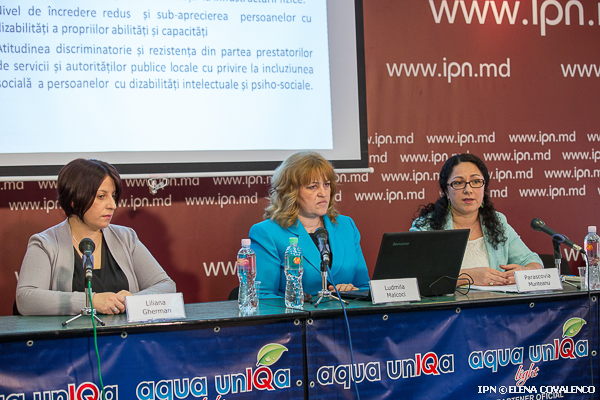A study conducted by Keystone Moldova shows that most of the persons with disabilities have access to general education. Only 4% of the respondents said they went to school, while 35% said they wanted to continue the studies, but didn’t have this possibility because the family could not support them financially. Each fifth person could not continue the studies owing to the state of health, while each tenth person because they needed personal support.
Keystone Moldova executive director Ludmila Malcoci, in a news conference at IPN, said each second person with disabilities does not know where to go if they want to learn a trade or which organizations inform and support persons with disabilities. More than 40% of the surveyed persons with disabilities do not know where they can complain if they are discriminated or their rights are violated.
The experts involved in the study established that among the barriers to access to education are the insufficient training level of teachers, lack of support services in secondary professional and higher education institutions, poor infrastructure and discriminatory attitude of teaching staff.
Keystone Moldova programs coordinator Parascovia Munteanu said that within a focus group consisting of teachers, these admitted that, on admission, they reorient persons with disabilities to other studies than teacher training because they consider that these persons do not have teaching abilities and the parents would not want their children to be taught by a disabled teacher or educator.
The study “Social inclusion of persons with disabilities” was conducted by Keystone Moldova with financial support from Soros Foundation Moldova. The field research was carried out between last December and this January and covered a sample of 1,206 persons with disabilities older than 18 from 1,107 communities and 99 residential and placement institutions.

